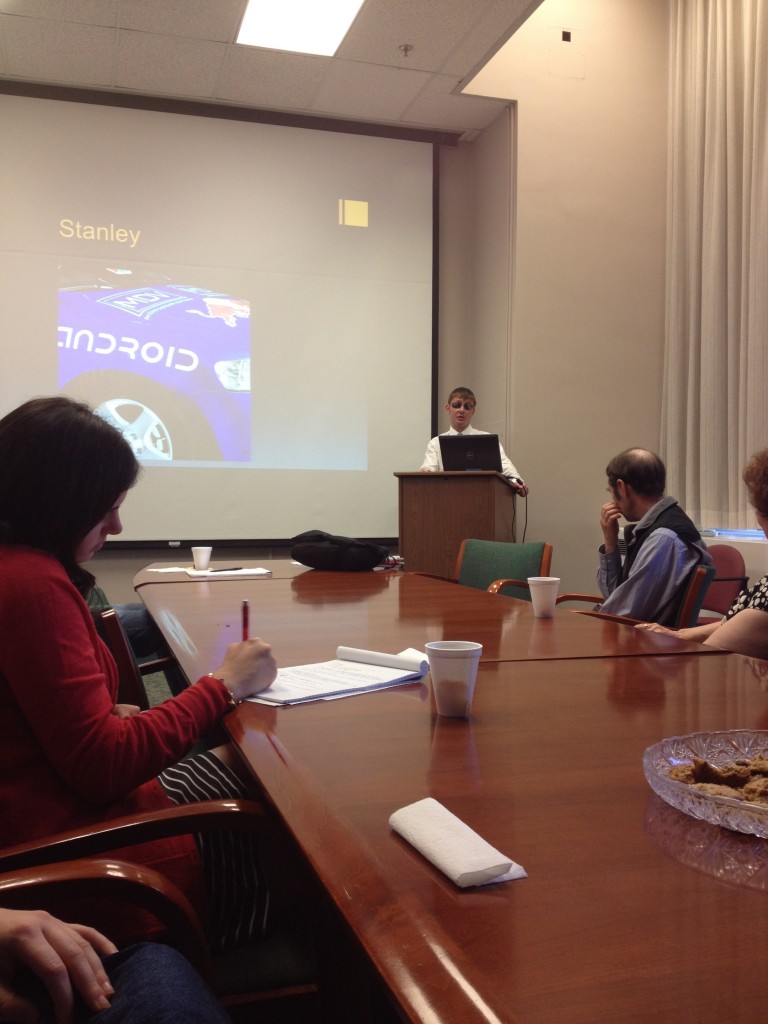Mark Mullen: Disability History and Adaptive Transportation

On Tuesday, July 23, Mark Mullen gave a presentation about his historical research at the National Museum of American History. He is an intern at this museum, studying disability history and adaptive transportation. Mark is especially interested in this subject as he is blind himself and relies on a guide dog. His presentation was very informative about the technological innovations that have helped people with disabilities. For example, keyless entry and start for automobiles is an invention that has greatly aided quadriplegics. Other such inventions include hand controls where you push to brake and pull to accelerate, and hooks on steering wheels for prosthetic arms. Mark also discussed possible future inventions, such as a fully autonomous car. He believes that in ten to fifteen years, research and technology will lead to a car that will basically drive itself.
The presentation also covered specific people who have had an impact on adaptive transportation. Franklin D. Roosevelt, for example, insisted on driving around in his car in spite of his polio. His car was specially adapted to fit his needs, even sporting a cigarette dispenser that would light his cigarette for him. Judge Quentin Corley was another influential figure who invented prosthetics and modified steering wheels. Patterns in history also shaped disability history. For example, after the two world wars, there were many veterans who had lost limbs or were disabled in some way. Two of these veterans, McGonegal and Russell, were able to use their experiences to help advance the plight of people with disabilities. Even in NASCAR, people like Ray Paprota and Kelly Sutton have used adaptive cars to race. However, Mark mentioned several obstacles in this field. Accessible automobiles are often very expensive, and there are still laws in some states that restrict deaf people from driving (even though it has been proven that they are often more attentive drivers). But overall, new technology is very promising for people with disabilities, and we can expect to see even more transformative innovations.






